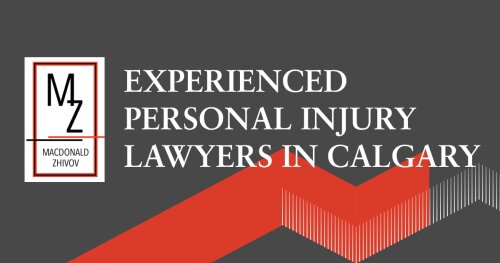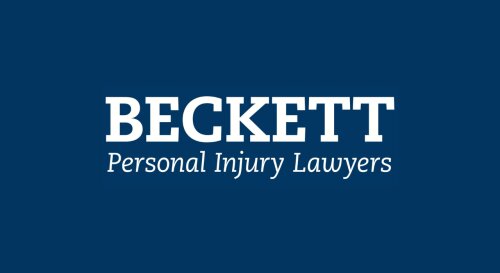Best Property Damage Lawyers in Canada
Share your needs with us, get contacted by law firms.
Free. Takes 2 min.
Or refine your search by selecting a city:
List of the best lawyers in Canada
About Property Damage Law in Canada
Property damage law in Canada refers to the legal regulations and responsibilities associated with harm caused to property, whether through accident, intentional acts, or natural events. This area of law ensures that property owners are compensated fairly, seeks to determine liability, and provides a framework for resolving disputes. The legal frameworks and remedies for property damage can vary across provinces but generally involve similar principles of negligence, liability, and insurance coverage.
Why You May Need a Lawyer
There are several situations where you may need legal assistance for property damage:
- Disputes: If you are involved in a property damage dispute with another party, a lawyer can help negotiate a settlement or represent you in court.
- Insurance Claims: If you've filed an insurance claim for property damage and it has been denied or undervalued, a lawyer can assist in challenging the insurer's decision.
- Complex Cases: For property damage resulting from construction defects, environmental issues, or other complex matters, legal expertise may be necessary to navigate the complexities of the case.
- Liability Concerns: If you are accused of causing property damage and potentially liable for compensation, a lawyer can help defend your interests.
Local Laws Overview
The laws governing property damage in Canada can vary between provinces, but common aspects include:
- Negligence and Liability: Determining negligence is central to resolving property damage cases, where the responsible party must compensate the affected party.
- Insurance Regulations: Property insurance policies and related claims are subject to provincial regulations, influencing how claims are processed and disputes settled.
- Environmental and Municipal Laws: Regulations concerning environmental damage and municipal by-laws may also affect property damage claims, particularly in cases involving pollution or zoning issues.
Frequently Asked Questions
What should I do immediately after discovering property damage?
Document the damage with photographs and videos, and report the issue to your insurance company as soon as possible. Keep any damaged property until it has been assessed.
How is compensation for property damage calculated?
Compensation is typically calculated based on repair or replacement costs, depreciation, and any additional losses incurred, such as loss of use of the property.
Can I file a claim for property damage that was not my fault?
Yes, if someone else is liable for the damages, you can file a claim against their insurance or seek compensation directly from the responsible party.
What is the statute of limitations for property damage claims in Canada?
The statute of limitations varies by province but typically ranges from two to six years from the date of damage or discovery.
What if my insurance company denies my claim?
You can appeal the decision, request an internal review, or seek legal assistance to dispute the denial in court.
How can I prove negligence in a property damage case?
Evidence such as photographs, expert testimonies, witness statements, and maintenance records can help establish negligence.
Are weather-related damages covered by insurance?
Coverage for weather-related damages depends on your insurance policy. Standard policies may cover certain events while excluding others, such as flood damage.
Can I seek compensation for emotional distress caused by property damage?
While emotional distress claims are more challenging to pursue, they may be possible in certain situations, depending on provincial laws and specific circumstances.
Is mold damage considered as property damage?
Yes, mold can be considered property damage, but coverage for mold often depends on the cause and insurance policy terms.
What should I do if a neighbor's tree falls on my property?
Document the damage, contact your insurer, and communicate with your neighbor. You might be able to claim damages from their insurance, depending on liability.
Additional Resources
For more information and assistance, you can consult the following resources:
- Provincial consumer protection offices
- Your local bar association for referrals to property damage lawyers
- Insurance Bureau of Canada for guidance on insurance claims
- Local municipal offices for information on by-laws and building codes
Next Steps
If you require legal assistance with property damage, consider the following steps:
- Gather all relevant documentation, such as photos, repair estimates, insurance policies, and correspondence.
- Consult a legal professional specialized in property damage to assess the merits of your case.
- Alternatively, reach out to your local bar association for lawyer referrals if you do not have one yet.
- Consider alternative dispute resolution methods like mediation if you are open to settling disputes outside of court.
Lawzana helps you find the best lawyers and law firms in Canada through a curated and pre-screened list of qualified legal professionals. Our platform offers rankings and detailed profiles of attorneys and law firms, allowing you to compare based on practice areas, including Property Damage, experience, and client feedback.
Each profile includes a description of the firm's areas of practice, client reviews, team members and partners, year of establishment, spoken languages, office locations, contact information, social media presence, and any published articles or resources. Most firms on our platform speak English and are experienced in both local and international legal matters.
Get a quote from top-rated law firms in Canada — quickly, securely, and without unnecessary hassle.
Disclaimer:
The information provided on this page is for general informational purposes only and does not constitute legal advice. While we strive to ensure the accuracy and relevance of the content, legal information may change over time, and interpretations of the law can vary. You should always consult with a qualified legal professional for advice specific to your situation.
We disclaim all liability for actions taken or not taken based on the content of this page. If you believe any information is incorrect or outdated, please contact us, and we will review and update it where appropriate.
Browse property damage law firms by city in Canada
Refine your search by selecting a city.















